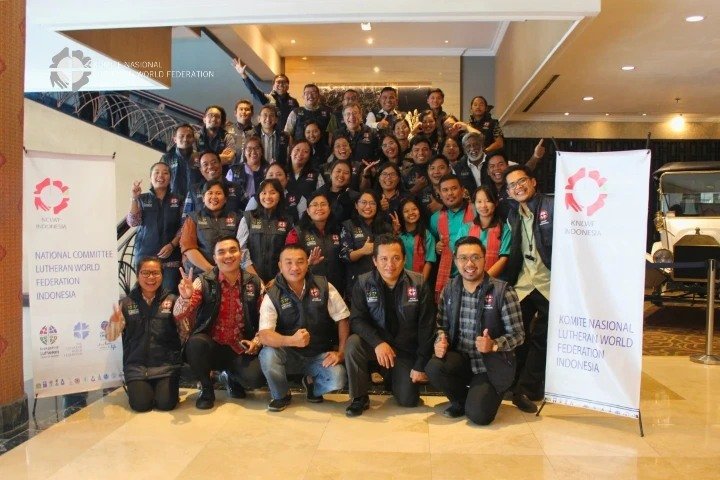Disaster Training Of Trainers (Day II)
Medan, November 1, 2023 – Disaster preparedness and management are critical aspects of ensuring the safety and security of communities in the face of natural and human-made disasters. The Disaster Training of Trainers, a comprehensive program aimed at equipping disaster management of Indonesian church workers with the necessary knowledge and skills, continued into its second day with a strong emphasis on building resilience and mitigating risk.
The training, organized by Evangelical Lutheran Church in America (ELCA) and KNLWF Indonesia, brings together experts and participants from diverse backgrounds to share knowledge and strategies to effectively handle disaster situations. The Disaster Training of Trainers in Indonesia continued its focus on resilience and risk mitigation on its second day. The session covered key emergency concepts: Disaster, Disaster Risk, Risk Reduction, Hazard, Exposure, Vulnerability, Capacity, Coping, and Resilience. These fundamentals are crucial for effective disaster management. Participants engaged in discussions and exercises to understand the interconnectedness of these terms in disaster contexts.
Climate change’s influence on disasters was emphasized. The importance of comprehending climate change, its effects, and ecosystem services was highlighted. Climate change adaptation and the significance of ecosystems in providing various services were discussed. Understanding these factors is vital for developing sustainable disaster management strategies.
The training incorporated real-world disaster scenarios, such as heavy rainfall and flooding events in northern Indonesia. Participants analyzed the events, their impact on communities, and discussed effective response and mitigation strategies. These practical exercises allowed participants to apply their knowledge and problem-solving skills in a realistic context.
The Disaster Training of Trainers continues to provide a platform for participants to enhance their expertise in disaster management and ensure the safety and resilience of communities in the face of potential disasters.

